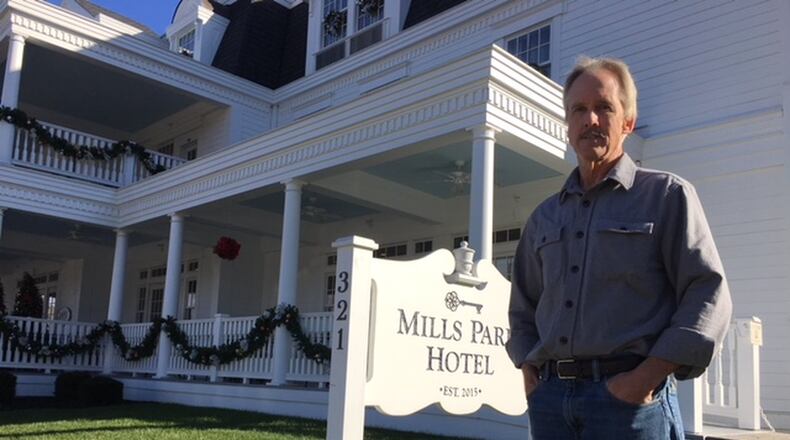Village officials are implementing a 3 percent lodging tax effective Jan. 1, a move that will not only affect the village’s only hotel, the Mills Park Hotel, but also residents who offer their homes and rooms for rent on websites such as Airbnb.
Residents who provide lodging for guests more than five times a year will need to apply to the village zoning administrator for a Transient Occupancy Registration Certificate within 30 days of Jan. 1 or after commencing business, whichever is later, according to the policy approved by village council.
Certified lodgers will then need to fill out a lodging tax return and mail it with a check for the amount owed to the village twice a year, Jan. 31 and July 31.
TRENDING: Victim in Kettering house explosion, fire identified
Village officials say the tax is conservatively estimated to generate $25,000 a year in revenue.
“The village has a lot of special events, and there are costs to the village that do not get passed on,” said Village Manager Patti Bates. “The lodging tax can help offset the costs of special events.”
At least one lodger in the village supports the tax, but others say it’ll be burdensome to comply with the ordinance, especially those renting rooms in their homes. They question whether the village needs the extra revenue.
“I have no problem with it whatsoever. I’m happy to pay it,” said Bob Swaney, owner of the four-unit Jailhouse Suites on North Winter Street. “It’s highly unusual that you wouldn’t have a lodging tax. When you travel, you expect extra taxes.”
Swaney said “the village needs the money,” and he predicts the annual tax revenue generated from his rentals will be up to $3,000.
MORE: Greene County courts clerk retiring after 21 years
Mills Park Hotel owner Jim Hammond disagrees.
“There is no justification for the tax. They don’t need the money. They just kind of railroaded it in,” Hammond said.
Hammond said with about 50 employees, his 28-room hotel is the largest employer in the village and the biggest user of utilities. He said his business generates more tax revenue for the village through property taxes, but also by bringing visitors to the village who shop locally and pay sales taxes.
Hammond said council members were not receptive to his input on the issue.
“I feel like it penalizes our guests, and we don’t need to penalize them for no reason,” Hammond said.
Bates said to ensure compliance, village officials will check for Yellow Springs listings online.
“Village staff will be periodically checking the various vacation rental websites to match listings to registered property owners,” she said. “Other than that, the village has no specific monitoring mechanism in place.”
This past week, there were 18 different renters with listings on Airbnb’s website, including the Library Loft owned by Eric Clark.
Clark said the tax will be a burden for people who are taking advantage of the new “shared economy” business world to make ends meet. He said the Airbnb type rentals in town are popular, and last month was the first week he had an opening to list in a year and a half.
“It’s very expensive to live in this town. We have a lot of Airbnb type rentals, and people can pick up a little money if they rent out their house on a Saturday or Sunday,” he said.
Clark said he thinks the tax won’t be a big deal for the larger lodging establishments in town, but for the homeowners renting rooms, they’ll have to explain to their guests why they are paying more than the rate advertised online.
“It’s a perceived hassle for incoming guests,” he said.
More information about the lodging tax is available on the finance department's page on the village's website www.yso.com.
About the Author
